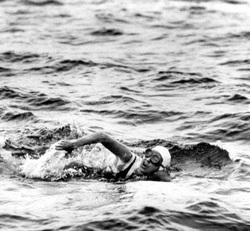In late January a surevey was conducted to find the most– and least–Bible–minded cities. The evangelical Barna Research organization found, to no one’s surprise, that the most Bible–minded cities in America are predominantly in the south.
What did Barna mean when they used the phrase, “Bible–minded”? The Barna website (http://cities.barna.org/americas-most-and-least-bible-minded-cities-2/) explained it thus--
The report ranks the most and least “Bible-minded” cities by looking at how people in those cities view the Bible. The study is based on 42,855 interviews conducted nationwide and the analysis of Bible trends was commissioned by the American Bible Society. Individuals who report reading the Bible in a typical week and who strongly assert the Bible is accurate in the principles it teaches are considered to be Bible-minded. This definition captures action and attitude—those who both engage and esteem the Christian scriptures. The rankings thus reflect an overall openness or resistance to the Bible in the country’s largest markets.
 The most Bible–minded city in Amer-ica, according to the survey, is Knoxville, Tennessee. Fully 52 percent of Knoxville residents report reading the Bible in a typical week and strongly believe the Bible is accurate in the principles it teaches.
Photo credit: Wikimedia Commons/nfutvol Original photo
The second– through 10th–most Bible–minded cities are in the states of Louisiana, Tennessee, Alabama, Mississippi, Missouri, North Carolina, Virginia and West Virginia (southern states all).
 Of the 96 USA cities included in the report, the least
Bible–minded city is apparently Providence, Rhode Island/Bedford, Massachusetts, where a scant nine percent—less than one in ten people—are “Bible–minded.” Providence mirrors the general state of Bible–mindedness in the northeastern region of the country. Eight of the 10 least Bible–minded cities are in New England. Photo credit: Wikimedia Commons/Will Hart Original photo
The second through tenth–least Bible–minded cities in America are in the states of New York, Vermont, Maine, Connecticutt, New Hampshire, California, Arizona and Iowa.
The surprise, for me, was finding that no cities in the Pacific Northwest ranked in the top ten, with San Francisco the lowest–ranking western city, at seventh–least Bible–minded. Phoenix and Las Vegas follow close behind. Seattle–Tacoma (with Olympia tagging along?) ranked 69th out of 96 cities surveyed (24% are Bible–minded)—not as low as one might
expect.
If you’re reading this, you may be pretty high up on the Bible–minded meter. I know I am. Reading the Bible faithfully and being devoted to the principles the Bible teaches seem to go hand–in–hand with personal dedication to God and serving His creation in a variety of ways. Keep it up!
*The views expressed in this blog are in no way intended to represent
the views of Child Evangelism Fellowship©.They are exclusively the expressed views
of Curtis Alexander.
 If you are one of the readers who has come to expect the Un–Sermon Blog when you sign on Monday mornings, I must apologize. A few weeks ago I took on a Sunday evening CEF Good News Club, and since then have had a hard time remembering to work on the Blog on Sunday evenings after I finish working with those great kids over at Sleater Kinney Road Baptist Church, in Lacey. I guess I need to re–orient my routine and get back in the knack of writing after the Good News Club.
The year was 1952. A brave, strong young woman was trying to do something no woman had ever done. On a cold, foggy July morning Florence Chadwick set out to swim from Santa Catalina Island to the coast of southern California. Florence was an experienced swimmer, the first woman ever to swim the English Channel both ways. But that was a mere 21 miles. It’s 26 miles across the Catalina Channel; and the fog that morning was as thick as cold, congealed oatmeal.
 For 15 hours Florence swam, despite the pea–soup fog, the cold water and the sharks following in her wake. Her coach, family and friends rode a boat nearby, shouting encouragement. More than once they chased off a hungry shark.
Finally, Florence Chadwick could go no farther. Cold and tired, as she always was when swimming a long course, she couldn’t see the shore, and she felt overwhelmed.
So she quit! She said she couldn’t swim any more, and they pulled her into the boat. She couldn’t see where she was or how far she had to go yet (remember, there was no GPS in 1952).
A pity. Florence had swum 25–1/2 miles—she gave up with only half–a–mile to go!
Without vision she felt lost. If she could have seen the shore half–a–mile ahead, she surely would have been able to finish. But the fog was too thick, and she couldn’t see her goal. So she gave up.
Many times in life we try our best, we work and fight and struggle. But we don’t know how close the goal is. And sometimes we give up just before we hit the shore, just before we reach our goal.
How’s your vision? Can you see the accomplishment of your goal, even if the fog is thick? Hebrews 11:1 says, “Now faith is being sure of what we hope for and certain of what we do not see.” Even when we can’t see what we’re looking for, God knows where we are and how much farther we have to go. And He won’t leave us. We can build our faith on that assurance.
Don’t give up. Trust the One who sees all. Draw strength from him and keep on swimming.
*The views expressed in this blog are in no way intended to represent the views of Child Evangelism Fellowship©. They are exclusively the expressed views of Curtis Alexander.
 John Wesley would have his 310th birthday next June, if such a thing were possible. He remains an enigmatic figure in a history which includes a mission to the New World, what we today call the USA. Of course, he didn’t actually make it to 310, but his influence certainly has.
Walking down Aldersgate Street in the old city of London, I came to the Museum of London, and right out front is the large plaque identifying the site as the place where Wesley, a fellow of Lincoln College, University of Oxford, had his conversion and began his subsequent life of service and eventual formation of the Methodist Church. His message was one of personal commitment to Jesus Christ, in contrast to the emphasis that the Church of England had on form and ritual as the means of experiencing God.
John Wesley and his hymn–composing brother, Charles, have left a stirring legacy that echoes through Christendom.
After his “Aldersgate experience,” John Wesley traveled throughout England, Scotland, Wales and Ireland to form small groups of believers that promoted intensive, personal discipleship and biblical instruction among their members. It has been estimated that in his lifetime he rode on horseback as much as 250,000 miles, equivalent to ten times around the world. He appointed devoted but un–ordained ministers who evangelized by open–air preaching and organized new believers into still more small groups. Using un–ordained preachers led to no end of problems for John Wesley.
He and his followers were vigorous, dedicated soldiers in many of the social actions of his day and beyond, working for the welfare of the poor, the uneducated and the disenfranchised. They were active in the abolition of slavery in England (1833), prison reform and the Sunday School movement (1780) that provided not only religious instruction but rudimentary reading skills for the masses.
John Wesley was unlucky in love, being married late in life. He was, after all, only human. But his faith in God and zealous ministry throughout a long life (he lived almost to age 88) have sealed his place as one of the great leaders in Christian history. Even Child Evangelism Fellowship has benefited from his life and influence.
*The views expressed in this blog are in no way intended to represent the views of Child Evangelism Fellowship©. They are exclusively the expressed views of Curtis Alexander.
 When I visited morning worship at Westminster Abbey in 2010, priest vicar the Revd. Dr. Ralph Godsall told a story of waiting on the train platform. He was wearing his his clerical collar, and was accosted by a man whose first words were, “You know what’s wrong with the church?” He meant the Church of England, of course, but his question reverberates around the Christian world.
The priest vicar went on to explain that the disgruntled man said, “The church’s problem is that it does not provide a moral lead” for the culture to follow.
I wonder, does the culture follow the church, or does the church reflect the moral ethos of the culture in which it functions? The answer can’t be “Both!” Or can it? There’s a symbiotic relationship in which both are changed and defined by what the other does. Out here in the Pacific Northwest it sometimes seems that the culture is oblivious to the influence of the
church—though it’s not. And in places like the southern USA the church seems to have a power and sway greater than reality shows it to be.
Many church people in the USA look with disdain at the church in Europe, whether Anglicans (the Church of England) or Lutherans (the Swedish national church, for example) or the Catholic Church (as once represented in French society).
In most of those places the percentage of people participating, on any given week, hovers below ten percent—some far lower, and the demographic realities lean toward women, beginning somewhere north of 50 years old. But which direction is the USA church headed? Can we puff out our chests and brag to the Europeans, “We have more than 30 percent attending every week”? That’s like me feeling proud that, while overweight, I’m not as fat as
so–and–so!
“What’s wrong with the church?” It doesn’t really help to point out the burgeoning Christian growth in China, South Korea, Uganda or Brazil. I’m not there. I’m here in the Pacific Northwest, and if the gospel is still good news to people here, I need to come up with an answer to the question.
The troublemaker in the train station is right, of course. The Christian church and her clergy need to take the lead in moral living that appropriates the power of God to address moral issues like hunger, war and pollution as well as abortion, homosexuality and euthanasia.
 What’s wrong with the church? We are! And we can only expect change
as we allow God to change us, individually, from selfish to selfless, from judgmental to gentle, from battleship to hospital ship.
So, help us, God!
*The views expressed in this blog are in no way intended to represent the views of Child Evangelism Fellowship©.They are exclusively the expressed views of Curtis Alexander.
|








 RSS Feed
RSS Feed